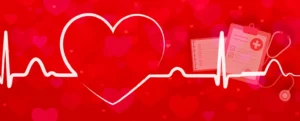Six Reasons to Go to the Emergency Room
If you are having trouble breathing, have chest pain or are experiencing a lot of swelling in your body, go immediately. Minor swelling, such as in your fingers or toes (which is caused by extra fluid), can be treated with medication at home. If it becomes painful, that’s when you need to go see a doctor. Blood: Blood in your urine or stool usually indicates some sort of infection and can be remedied with antibiotics. Blood coming from an open wound means it’s serious—seek help right away. It also could mean something more serious is going on in other parts of your body; if you’re experiencing blood loss, find out why ASAP so it can be dealt with accordingly.
Most minor swelling can be managed at home with ice, elevation and anti-inflammatory drugs. If it’s your face or a limb that’s swollen, see a doctor right away because swelling could mean there’s something wrong with an artery or vein. You might also have deep vein thrombosis (DVT), which is caused by blood clots forming in your legs. If you can’t feel your fingers, toes or legs after an injury, seek medical attention as soon as possible because something may be going on inside that you don’t know about.
If you have swelling in one or more parts of your body—particularly your legs, ankles, and feet—you could be suffering from a condition called peripheral arterial disease (PAD). PAD happens when plaque builds up inside your arteries and restricts blood flow to your extremities. Swelling usually occurs in one leg, but if it’s extreme enough, it can affect both legs as well as other areas like your arms or abdomen. The swelling may feel tight or heavy, rather than painful. When you try to walk or stand up, it can make it hard for you to move around. If you suspect that swollen limbs are caused by PAD—or any other medical problem—the best thing is to see a doctor immediately.




